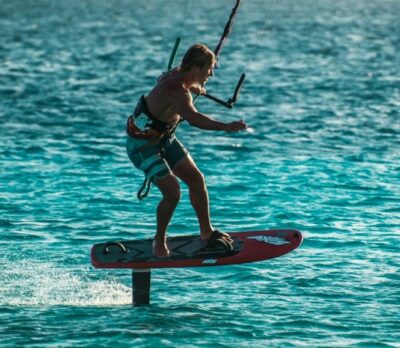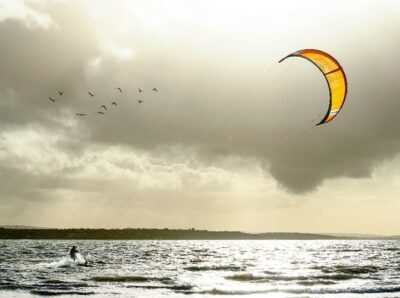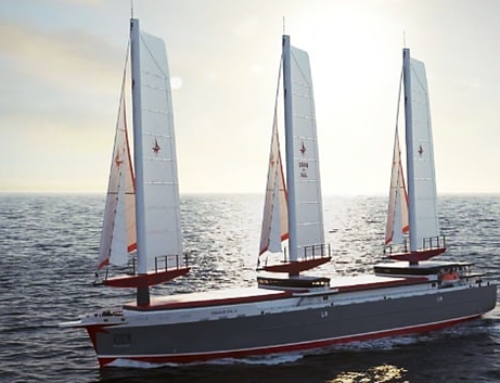High-Flying Adrenaline: Kiteboarding Soars into the Olympics with Cutting-Edge Technology
 In a darkened room beneath the ship-like “bridge” that overlooks the sparkling Mediterranean Sea, a team of jurors is intensely focused on a glowing array of screens. Below them, the horizon is dotted with kiteboarders slicing through the water at breathtaking speeds. This is the Olympic 2024 debut of kiteboarding, where the sport’s electrifying pace has changed the way officials make their calls.
In a darkened room beneath the ship-like “bridge” that overlooks the sparkling Mediterranean Sea, a team of jurors is intensely focused on a glowing array of screens. Below them, the horizon is dotted with kiteboarders slicing through the water at breathtaking speeds. This is the Olympic 2024 debut of kiteboarding, where the sport’s electrifying pace has changed the way officials make their calls.
Normally, Olympic sailing jurors would be out on the water, monitoring races from speed boats, known as RIBS, and signaling penalties with colored nautical flags. But kiteboarders, capable of reaching speeds up to 80 kilometers per hour, have proven too fast for even the swiftest RIBS. So, for the first time, race officials are stationed onshore, relying on live drone footage to keep up with the action.
Kiteboarding, now known as the fastest sport of the Olympics, has stormed onto the scene in Marseille, France. The sport’s arrival has brought with it a new level of intensity, with athletes navigating their foiling boards around a course at blistering speeds, all while trying to avoid catastrophic wipeouts. (A foilboard, also known as a hydrofoil board, is a type of board used in water sports. These have a hydrofoil mounted underneath instead of traditional fins, which allows the board to lift above the water surface, giving the impression of “flying”)
The addition of this lightning-fast event has forced officials to adapt. Inside the quiet confines of the race control room, one person is charged with coordinating the two drone pilots who are stationed on boats, following the kiteboarders from above. The drone footage provides a crucial bird’s-eye view for the jurors, enabling them to make split-second decisions on whether any rules have been broken.
decisions on whether any rules have been broken.
The footage of these events, streamed live from the drones, is complemented by GPS tracking of the athletes, who carry GPS microchips in their gear. This real-time data gives officials a comprehensive view of the race, with every twist, turn, and jump captured in minute detail.
As the race hurtles onward, the coordinator prepares the drone pilots for the final stretch. “Let’s get ready for the gybe and the finish leg,” he says, his voice steady despite the high-stakes atmosphere. Moments later, the race is over. The jurors, glued to the screens, finally look up as they begin to dissect the events of the race.
This debut of kiteboarding at the Olympics is a glimpse into the future of high-speed sports, where technology and human skill are intertwined. With the help of drones, GPS tracking, and a team of sharp-eyed jurors, kiteboarding has brought a new level of excitement—and a new challenge—for both athletes and officials alike.
We at the Herd Law Firm are proud to fight for seamen, maritime workers and passengers in all types of personal injury and death claims. As maritime personal injury attorneys located in northwest Houston, we never waver in our commitment to help these maritime workers, passengers, and their families when they are injured or mistreated.
8/16/2024










